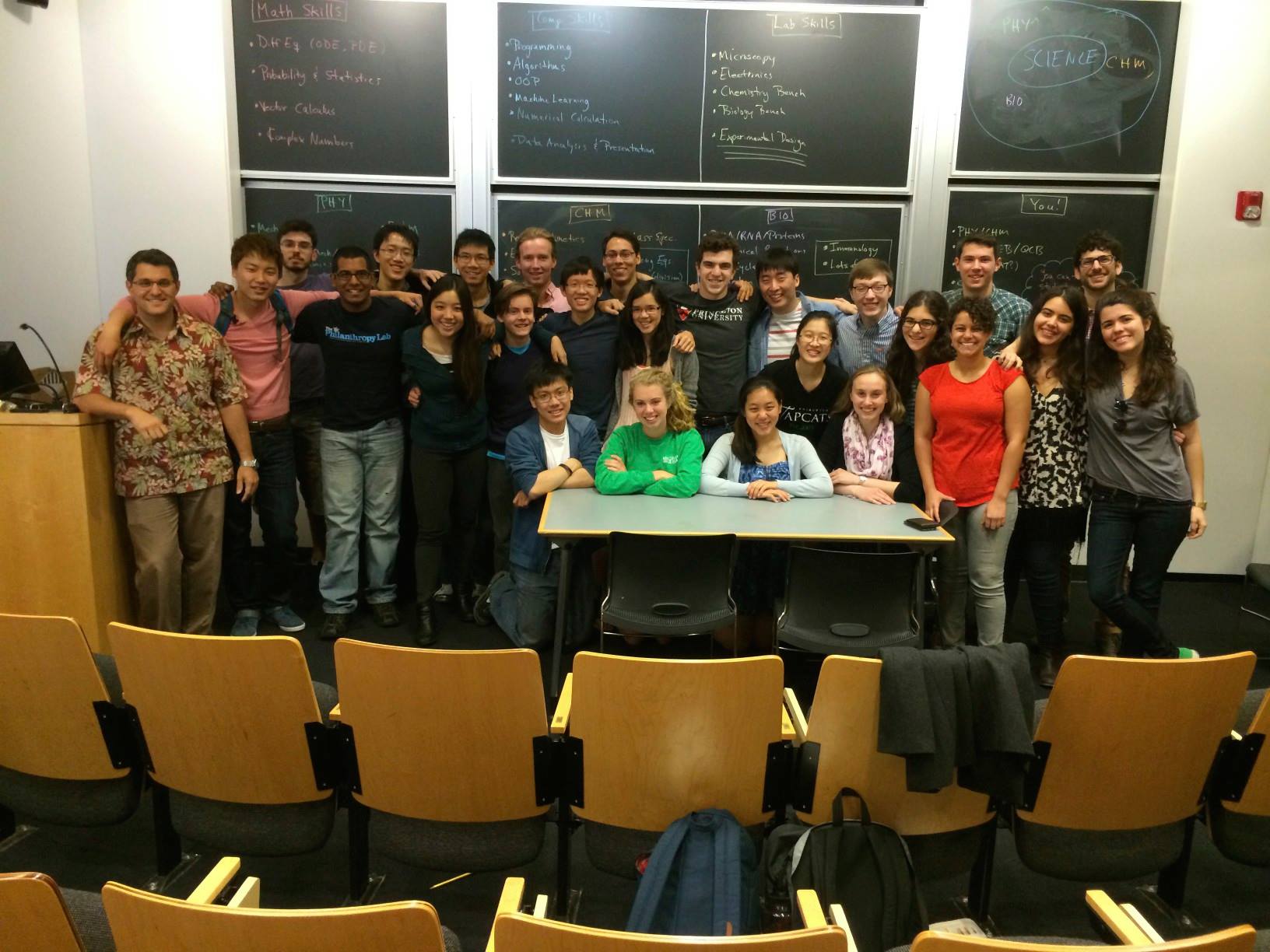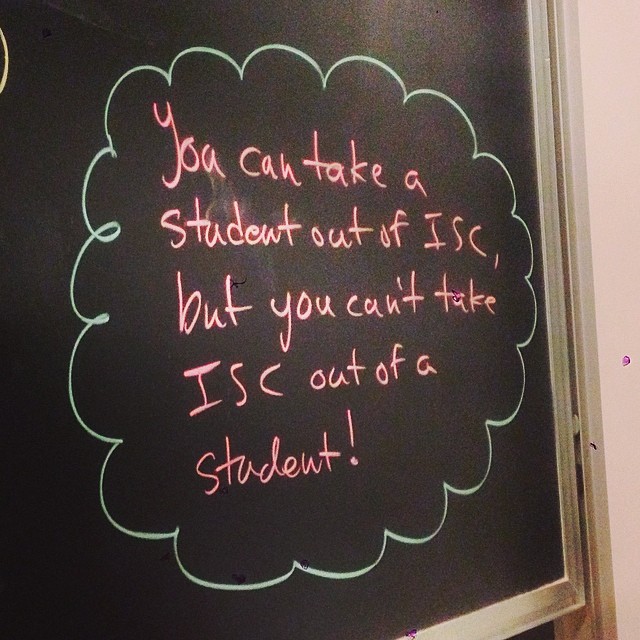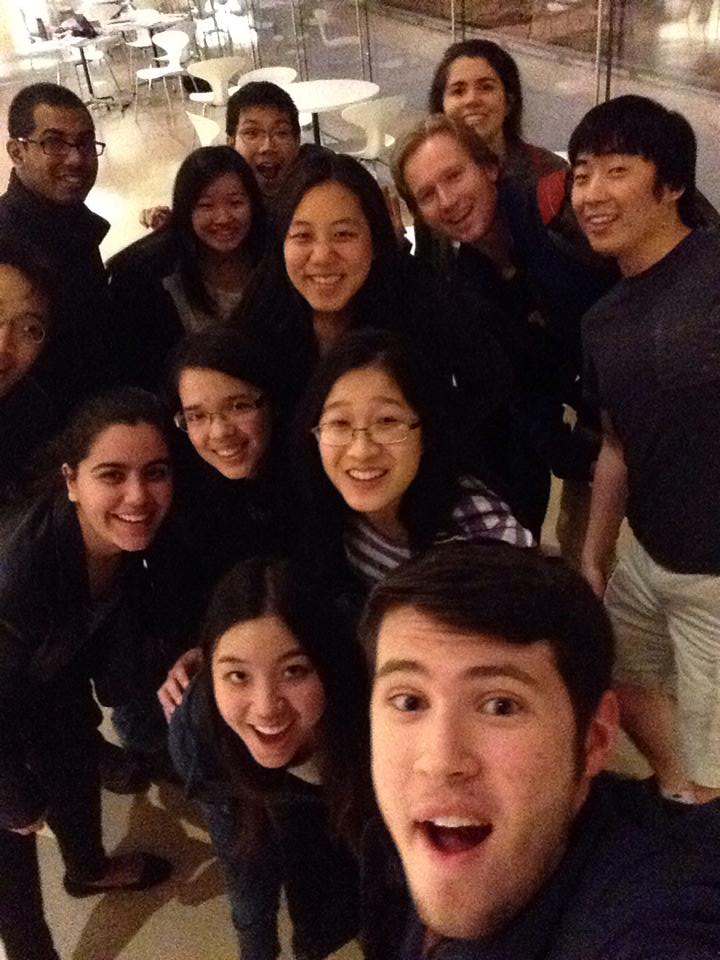Before coming to Princeton, I received an unassuming message asking me to consider a so-called Intergrated Science Curriculum (ISC). The program offered to teach physics, chemistry, biology and computer ccience together, and included a very heavy experimental component. I had recently started considering exploring the sciences, and after looking at length over the syllabus, I signed up.
Now, the first part of ISC is an intensive one-year four-course sequence that covers the typical first-year physics and chemistry curriculum, and one semester each of molecular biology and computer science. That's the equivalent of six courses in four, which should give you an idea of the expected intensity of the course.

It was one of the most academically challenging endeavors I have ever undertaken, but at the same time, it was extremely rewarding. It was also an experience unique to Princeton, made possible by the heavy focus on undergraduates, and the large amount of resources dedicated to underclassmen. We had over 20 instructors teaching the course, including a Nobel Prize winner, several members of the National Academy of Sciences, Princeton's dean of research and winners of Princeton's Distinguished Teaching Award. We even had a fully equipped laboratory exclusively for us. All for a class of about 30 people.

I am often asked if the intensity and rigor of the course was worth it, and I have always responded in the affirmative. Apart from a strong theoretical basis in all the sciences, the heavy experimental component exposed me to scientific investigation beyond the textbook. In our labs, we built our own solar cell and photometer, and even designed and executed our own experiment independently with guidance from our instructors.
Also, much of the course was focused on studying the intersection of the individual sciences, where most emerging modern research is happening. We were applying physics to biology, computation to chemistry and so on, breaking traditional boundaries followed by most freshman textbooks. In fall semester of sophomore year, I took a course on biophysics, taught by one of my instructors from ISC, to continue exploring these frontier areas, and I remain fascinated by life ever since. I may not end up studying more of biological physics, but it has redefined how I look at physics, not just as the formulation of a set of laws governing the universe, but as theories for explaining natural phenomena happening around us every day.







